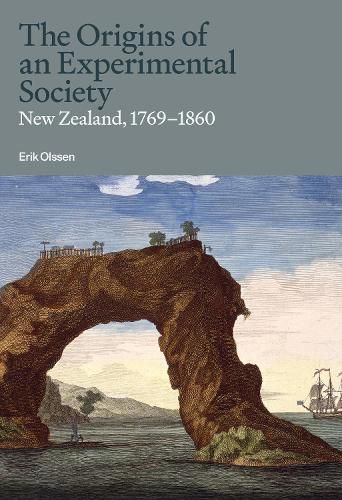Readings Newsletter
Become a Readings Member to make your shopping experience even easier.
Sign in or sign up for free!
You’re not far away from qualifying for FREE standard shipping within Australia
You’ve qualified for FREE standard shipping within Australia
The cart is loading…






In this major work, one of our leading historians offers a new account of the origins of New Zealand: how Pakeha settlers - nurtured on Enlightenment thought and evangelical humanitarianism - encountered Maori, and how the two peoples together developed a distinctively experimental society.
With James Cook's arrival in 1769 and the subsequent colonisation, New Zealand became one of the few post-Enlightenment experiments in creating a new nation anywhere in the world. The Europeans who settled these islands brought with them a belief in the power of reason and experience to improve peoples and societies. Encounters between Maori and these new arrivals profoundly shaped the thoughts and behaviours of both peoples.
Olssen argues that the people who settled New Zealand planned two experiments in making a better society. They hoped that, in contrast to earlier colonial projects, the indigenous New Zealanders would not be driven to extinction but eventually take their place as equals in a modern commercial society. And they aimed to create a society that was fairer and more just than the one they had left behind; a 'Better Britain'. While both experiments were first conceived by savants and philosophers, they gained ongoing support, by lodging in the hearts and minds of the settlers: whalers and missionaries, mothers and farmers. In turn, Maori adapted these new ideas to their own ends, giving up slavery and inter-tribal warfare, and adapting the institutions of the colonisers in ways that would re-define the experiments.
This then is an ethnography of 'tangata Pakeha', a people of European descent changed by their encounters with 'tangata Maori' and their land - just as Maori were themselves changed - and the story of the society they built together. Ranging across intellectual and cultural history, from the beach at Paihia to the coffee houses of Paris, Olssen enables us to understand the origins of New Zealand anew.
$9.00 standard shipping within Australia
FREE standard shipping within Australia for orders over $100.00
Express & International shipping calculated at checkout
In this major work, one of our leading historians offers a new account of the origins of New Zealand: how Pakeha settlers - nurtured on Enlightenment thought and evangelical humanitarianism - encountered Maori, and how the two peoples together developed a distinctively experimental society.
With James Cook's arrival in 1769 and the subsequent colonisation, New Zealand became one of the few post-Enlightenment experiments in creating a new nation anywhere in the world. The Europeans who settled these islands brought with them a belief in the power of reason and experience to improve peoples and societies. Encounters between Maori and these new arrivals profoundly shaped the thoughts and behaviours of both peoples.
Olssen argues that the people who settled New Zealand planned two experiments in making a better society. They hoped that, in contrast to earlier colonial projects, the indigenous New Zealanders would not be driven to extinction but eventually take their place as equals in a modern commercial society. And they aimed to create a society that was fairer and more just than the one they had left behind; a 'Better Britain'. While both experiments were first conceived by savants and philosophers, they gained ongoing support, by lodging in the hearts and minds of the settlers: whalers and missionaries, mothers and farmers. In turn, Maori adapted these new ideas to their own ends, giving up slavery and inter-tribal warfare, and adapting the institutions of the colonisers in ways that would re-define the experiments.
This then is an ethnography of 'tangata Pakeha', a people of European descent changed by their encounters with 'tangata Maori' and their land - just as Maori were themselves changed - and the story of the society they built together. Ranging across intellectual and cultural history, from the beach at Paihia to the coffee houses of Paris, Olssen enables us to understand the origins of New Zealand anew.